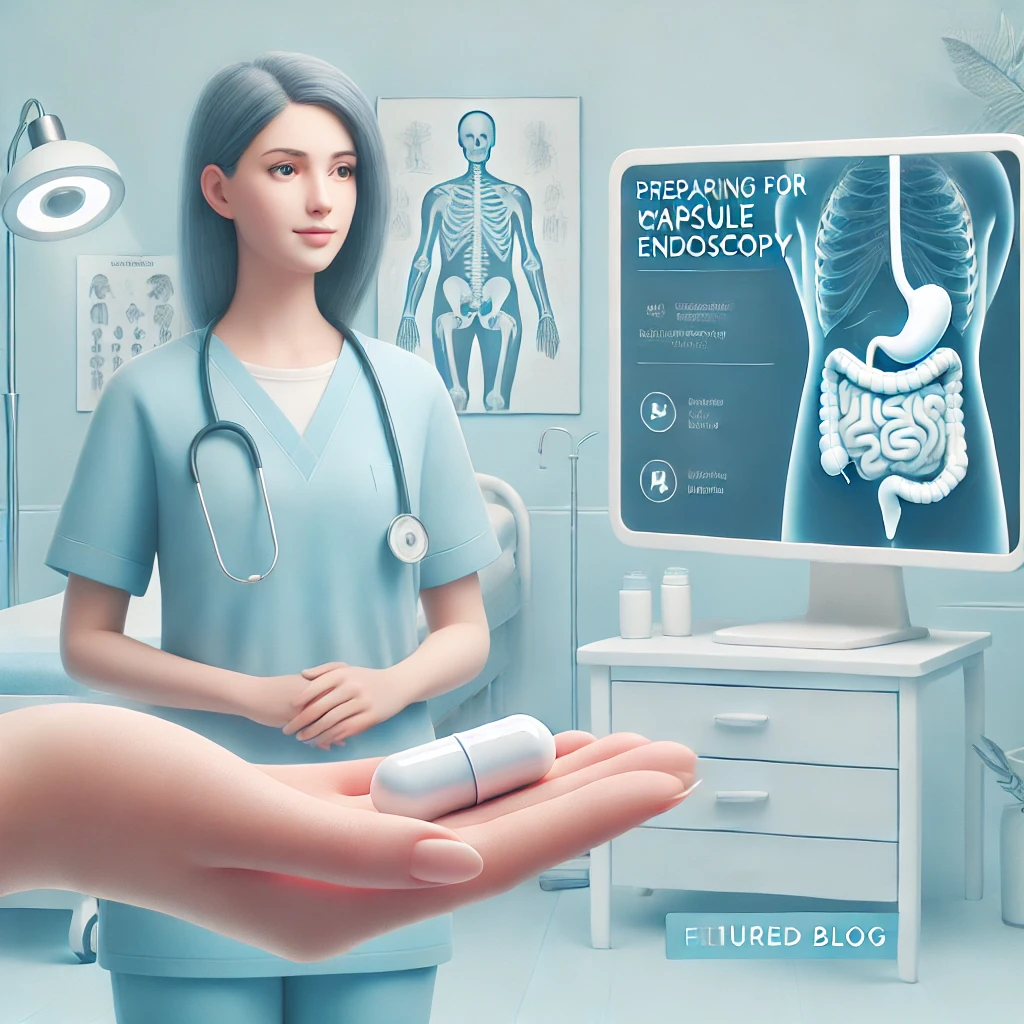If your doctor has recommended a wireless capsule endoscopy, you might feel a mix of curiosity and anxiety. The thought of swallowing a tiny camera can be a bit daunting! But don’t worry—this procedure is a non-invasive way to gain valuable insights into your gastrointestinal health.
In this guide, we’ll take you step-by-step through what to expect and how to prepare for your wireless capsule endoscopy, helping to make the experience much smoother.
What is Wireless Capsule Endoscopy?
Wireless capsule endoscopy is a cutting-edge medical imaging technology that allows physicians to examine the inside of your digestive tract without the discomfort of traditional endoscopy. Instead of inserting a tube, you simply swallow a small, pill-sized camera that captures thousands of images as it travels through your system. This technique is particularly beneficial for diagnosing conditions like Crohn’s disease, ulcers, and other gastrointestinal issues.
Who Might Need a Wireless Capsule Endoscopy?
If you’re experiencing ongoing symptoms like abdominal pain, gastrointestinal bleeding, or chronic diarrhea, your healthcare provider may suggest a wireless capsule endoscopy. It serves as an essential diagnostic tool, especially for patients with previous tests that haven’t provided a clear answer.
Step-by-Step Guide to Preparation
Step 1: Initial Consultation
Before undergoing a wireless capsule endoscopy, you’ll meet with your Gastroenterology at our Folsom, CA clinic for an initial consultation. This is your opportunity to discuss your medical history, medications, and any specific concerns you may have. Prepare a list of questions—this will help put your mind at ease.
Step 2: Dietary Adjustments
Diet plays a significant role in your preparation. In the days leading up to your capsule endoscopy preparation, you may need to follow a low-fiber diet to ensure clear imaging. Focus on easily digestible foods like white rice, plain pasta, and lean proteins. Avoid nuts, seeds, and whole grains, as these can interfere with the procedure.
On the day before your wireless capsule endoscopy, you’ll likely be asked to fast after a light breakfast. Make sure to adhere to any specific instructions your healthcare provider gives you.
Step 3: Medication Management
Managing your medications is vital. Some of them may need to be paused prior to your wireless capsule endoscopy to avoid any complications. Discuss all your medications during your initial consultation, including any that you may normally take for chronic conditions.
Step 4: The Day of the Procedure
On the day of your wireless capsule endoscopy, arrive at our Folsom, CA clinic prepared. Wear comfortable clothes and bring a list of your medications. It is advisable to have a friend or family member accompany you to assist with any post-procedure needs. While swallowing the capsule is quick and painless, it’s nice to have support.
What to Expect During the Procedure
Once you’re at the clinic, you’ll swallow the capsule with a glass of water. After that, you’ll wear a small device that collects data transmitted from the capsule as it moves through your digestive tract. You can generally go about your day as usual, but you might be advised to avoid solid foods for a few hours following the procedure. The entire process typically lasts about 8 hours, after which the capsule is naturally expelled through your stool.
Post-Procedure Care and Follow-Up
After your wireless capsule endoscopy, it’s crucial to stay hydrated and monitor how you feel. Your doctor will provide you with post-procedure dietary recommendations. Also, note when you will receive your results.
Support for Patients and Caregivers
Feeling overwhelmed is totally normal. It’s okay to bring someone with you for emotional support, and discussing your worries can help ease tension. Your healthcare team at our gastroenterology medical clinic in Folsom, CA, is also available to answer questions and provide reassurance.
Conclusion
Preparing for your wireless capsule endoscopy doesn’t have to be a stressful experience. By following these step-by-step guidelines, you’ll set yourself up for success. If you have further questions or want to schedule your procedure, please reach out to us at GastroMed Clinic in Folsom, CA—we’re here to support you every step of the way! You can contact us at (916) 983-4444.
Common Concerns and FAQs
You may still have questions about the wireless capsule endoscopy procedure. Here are a few of the most common concerns we hear at our gastroenterology medical clinic in Folsom, CA.
Is it painful?
No, most patients report no discomfort at all during the procedure. Swallowing the capsule is quick and easy.
How long does the procedure take?
The capsule transmits images for roughly 8 hours as it travels through your digestive tract, but swallowing it takes just a matter of moments.
Don’t worry; the capsule is designed to be expelled naturally. Most people will pass it without any issues. However, if you have any concerns, please reach out to our healthcare team at our gastroenterology medical clinic in Folsom, CA. We’re here to help!






